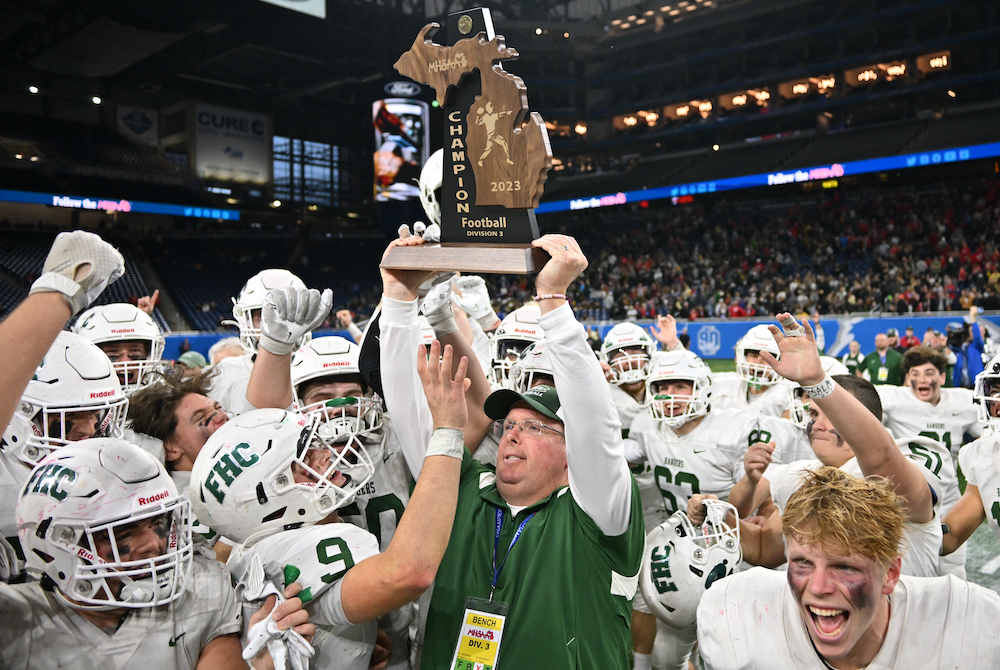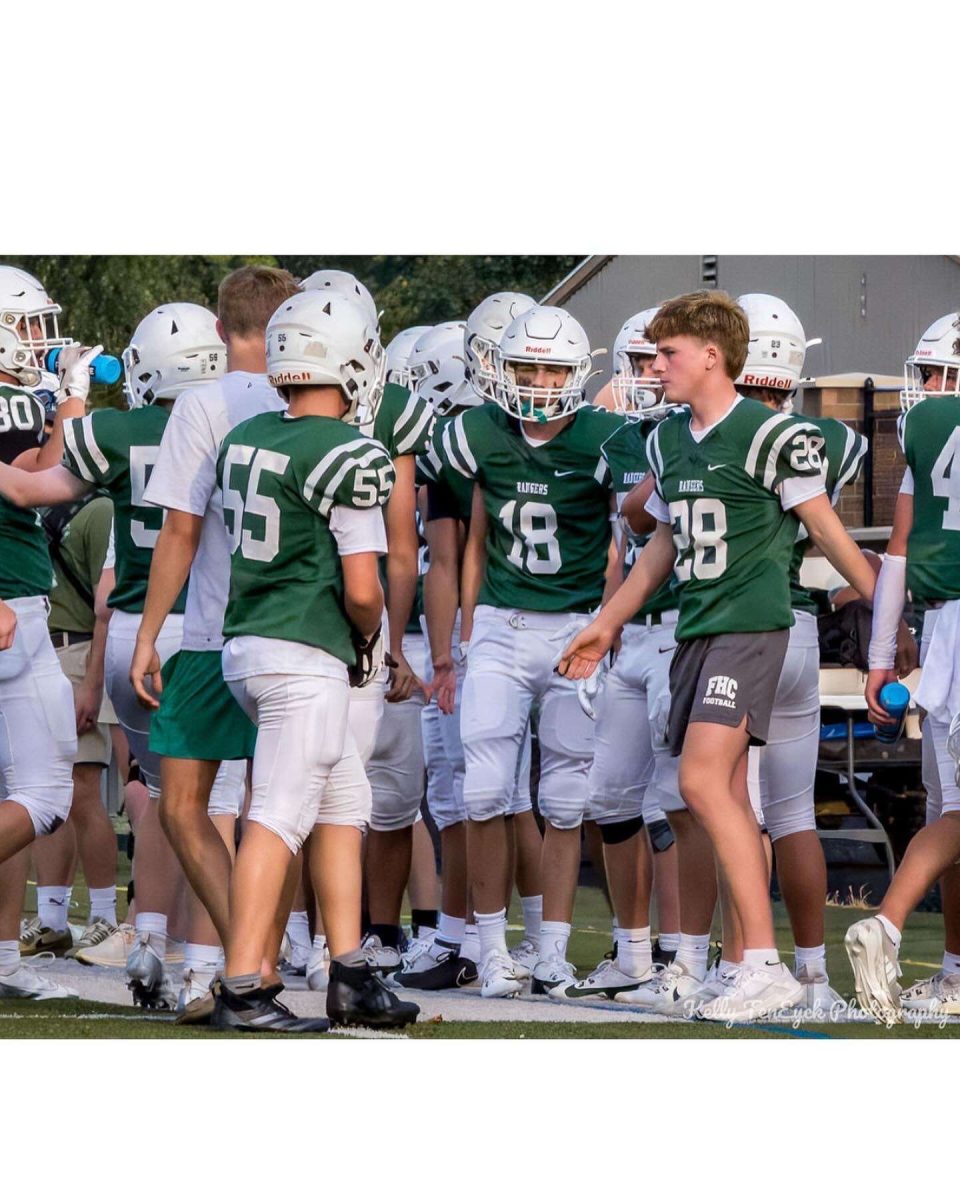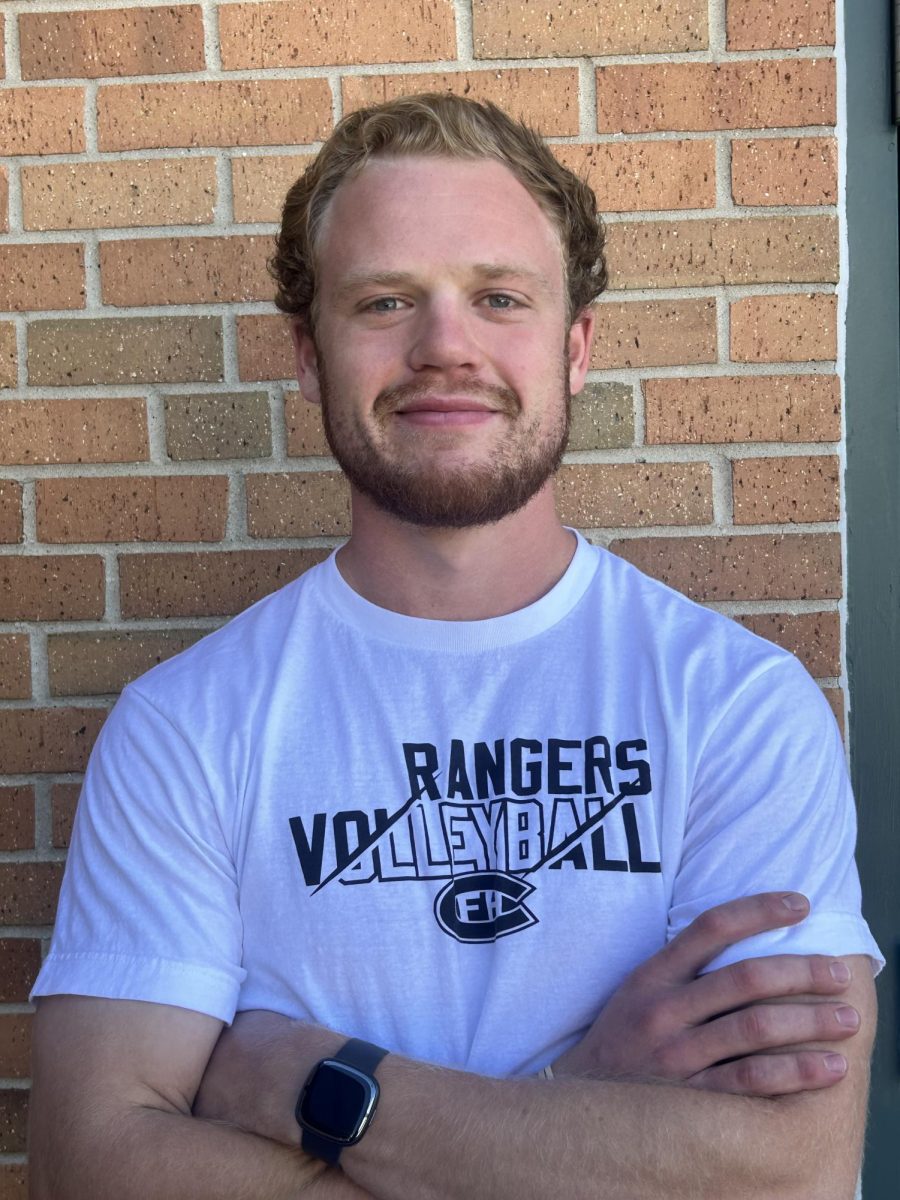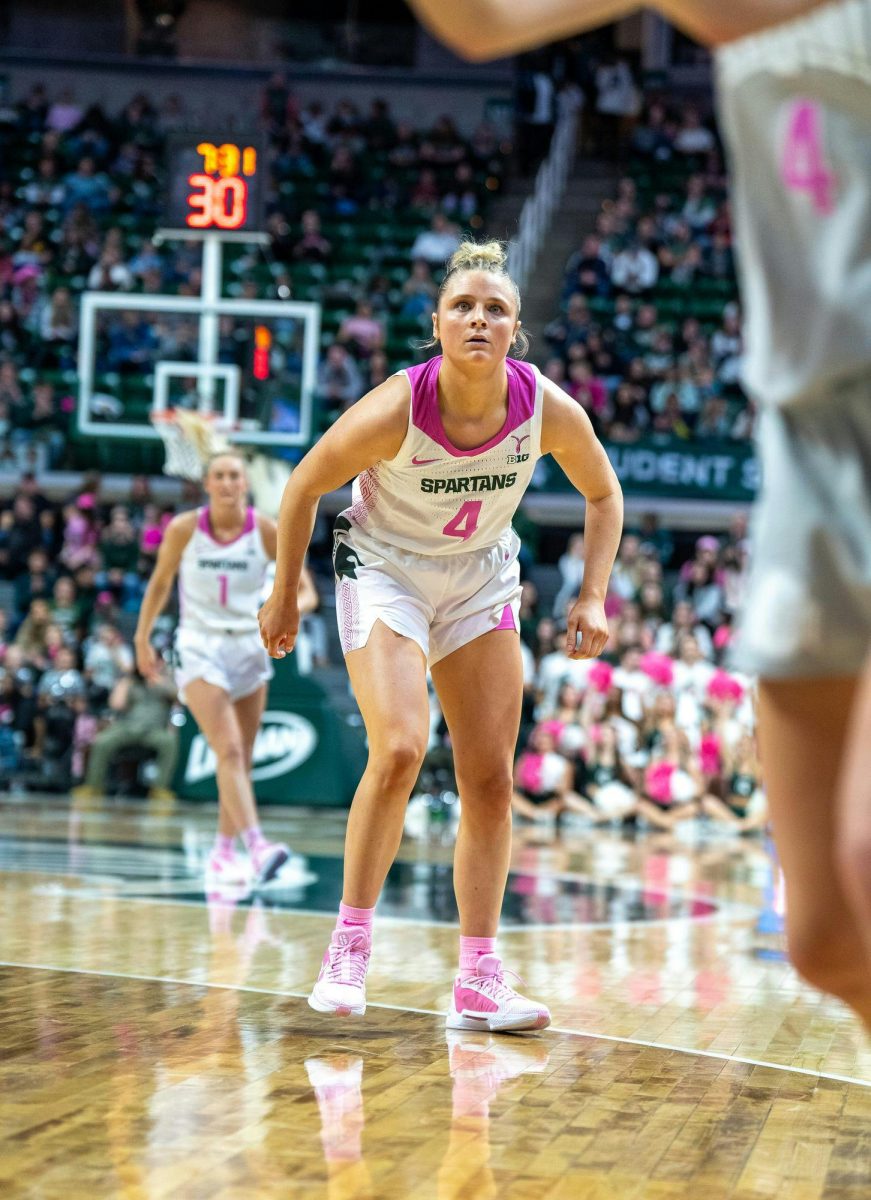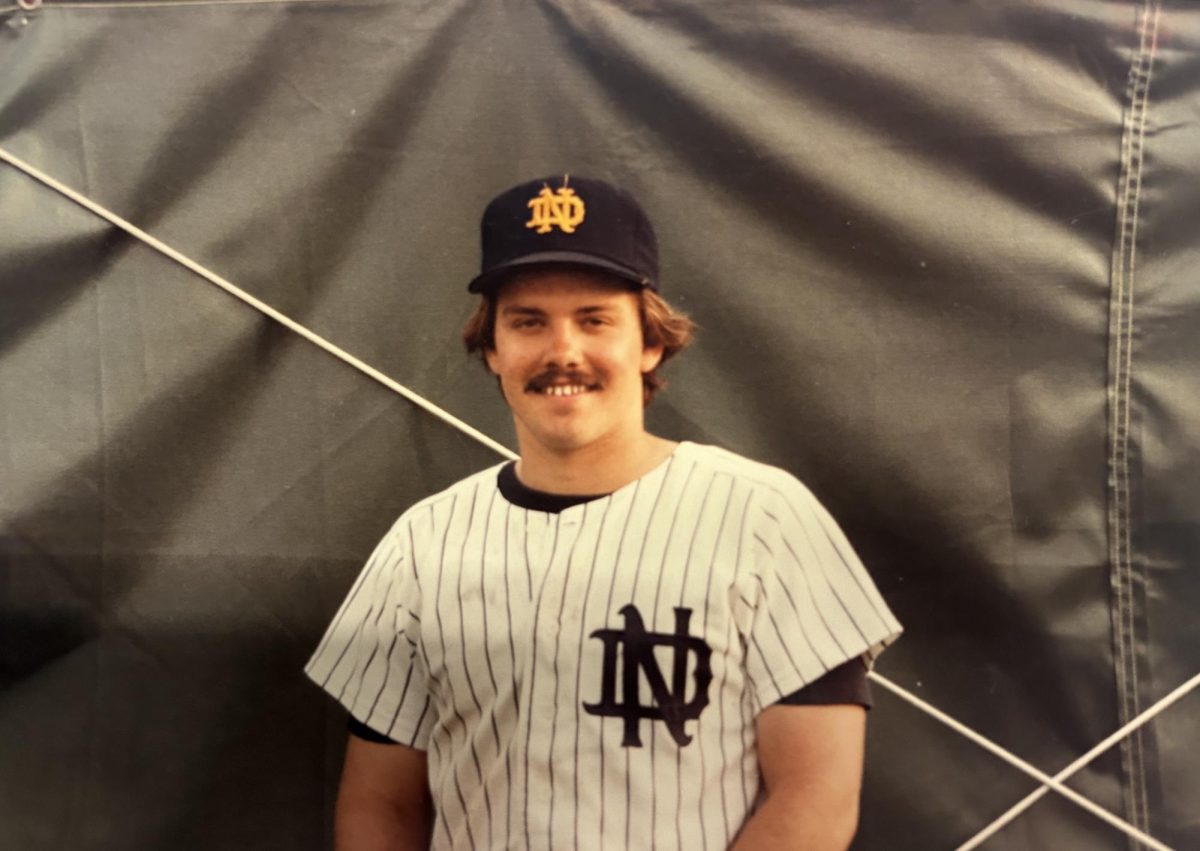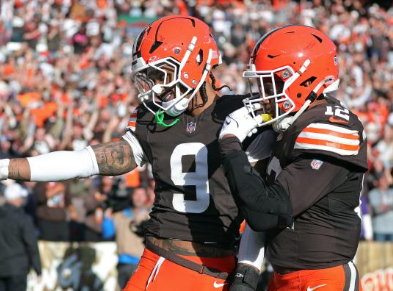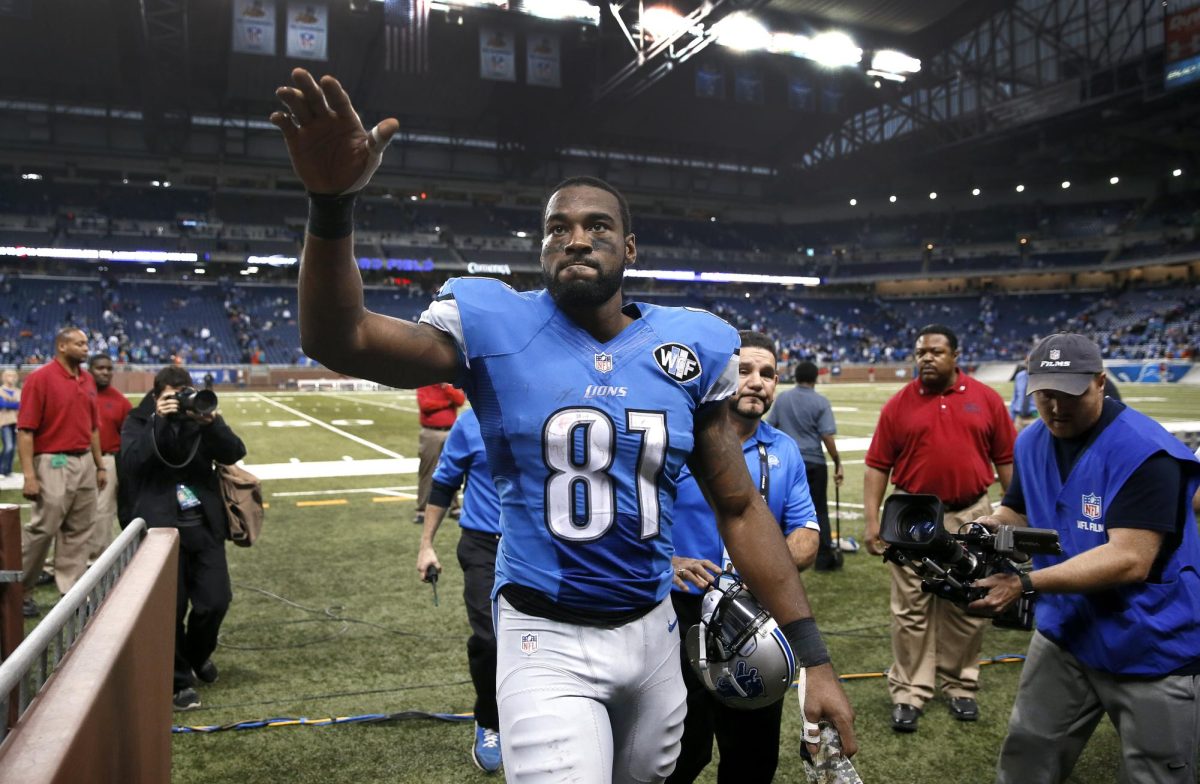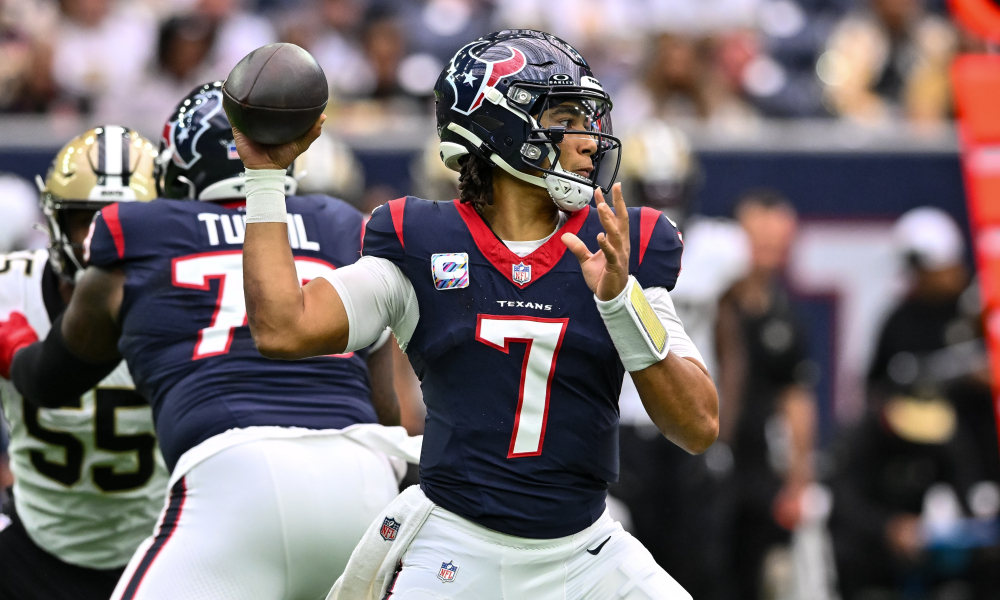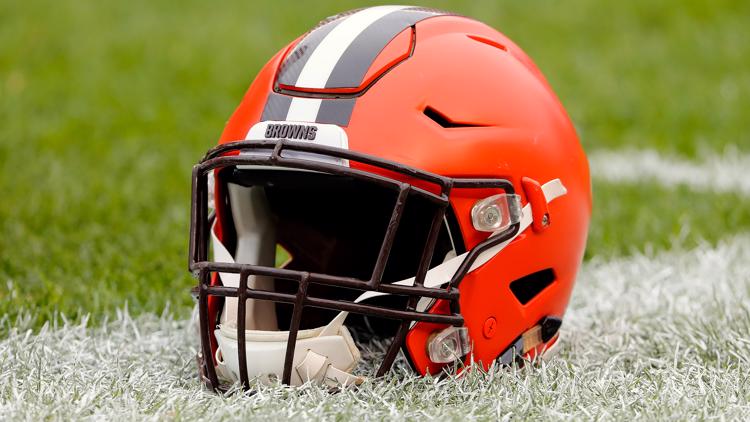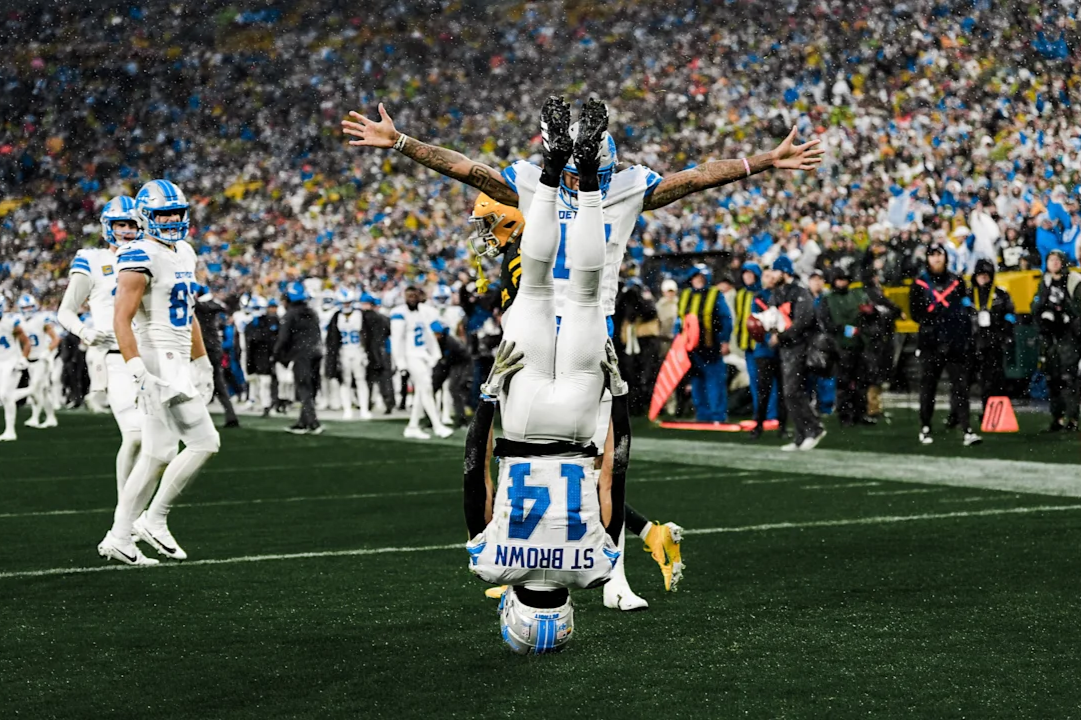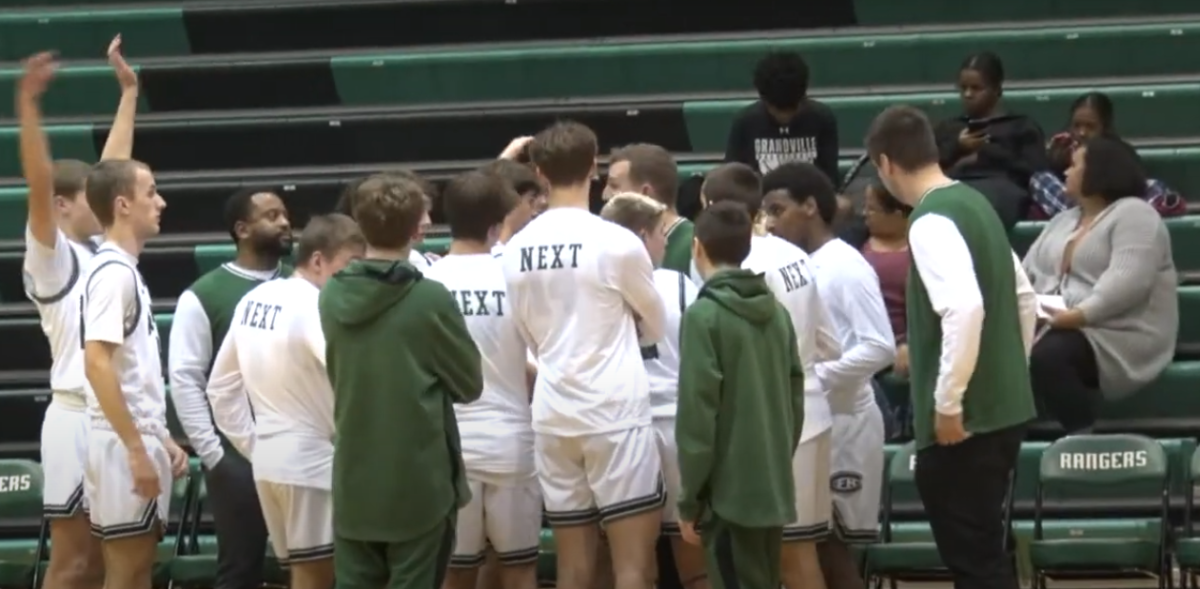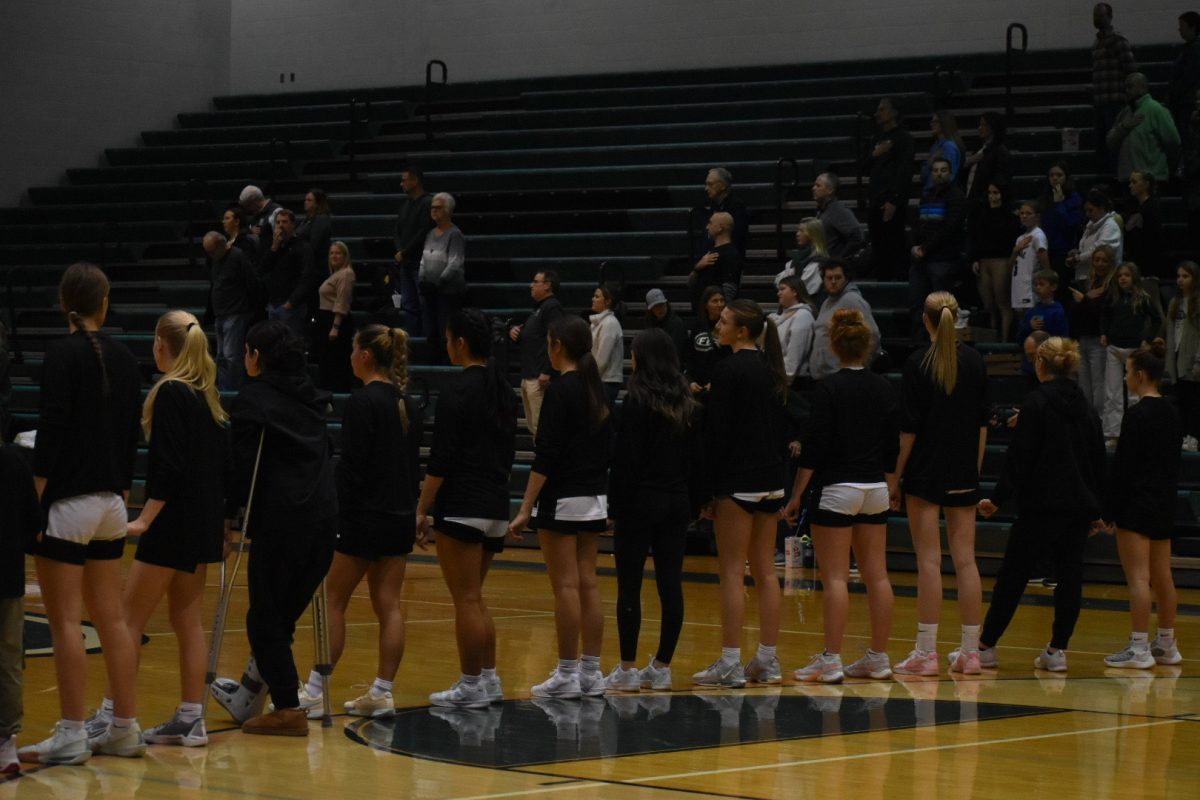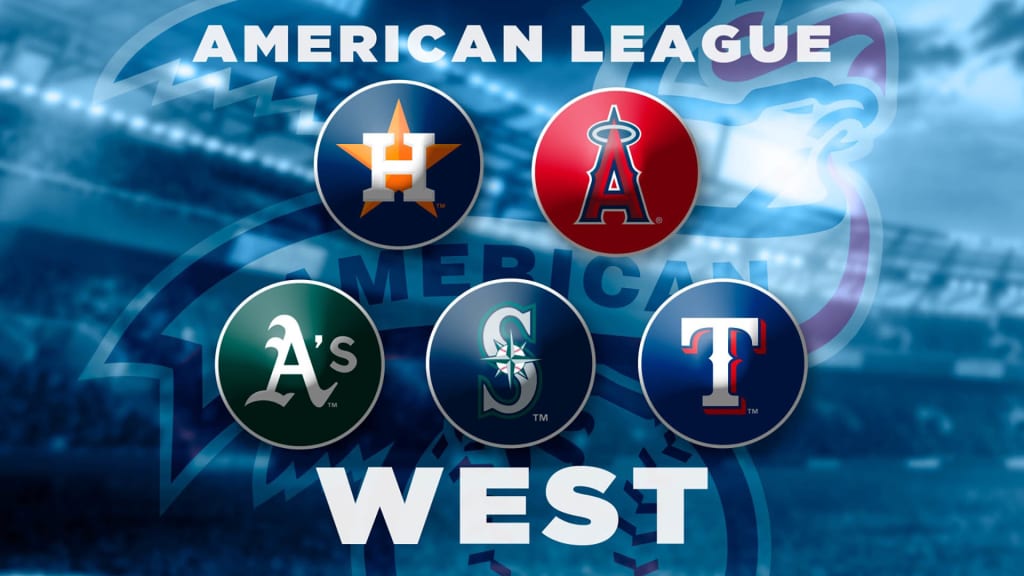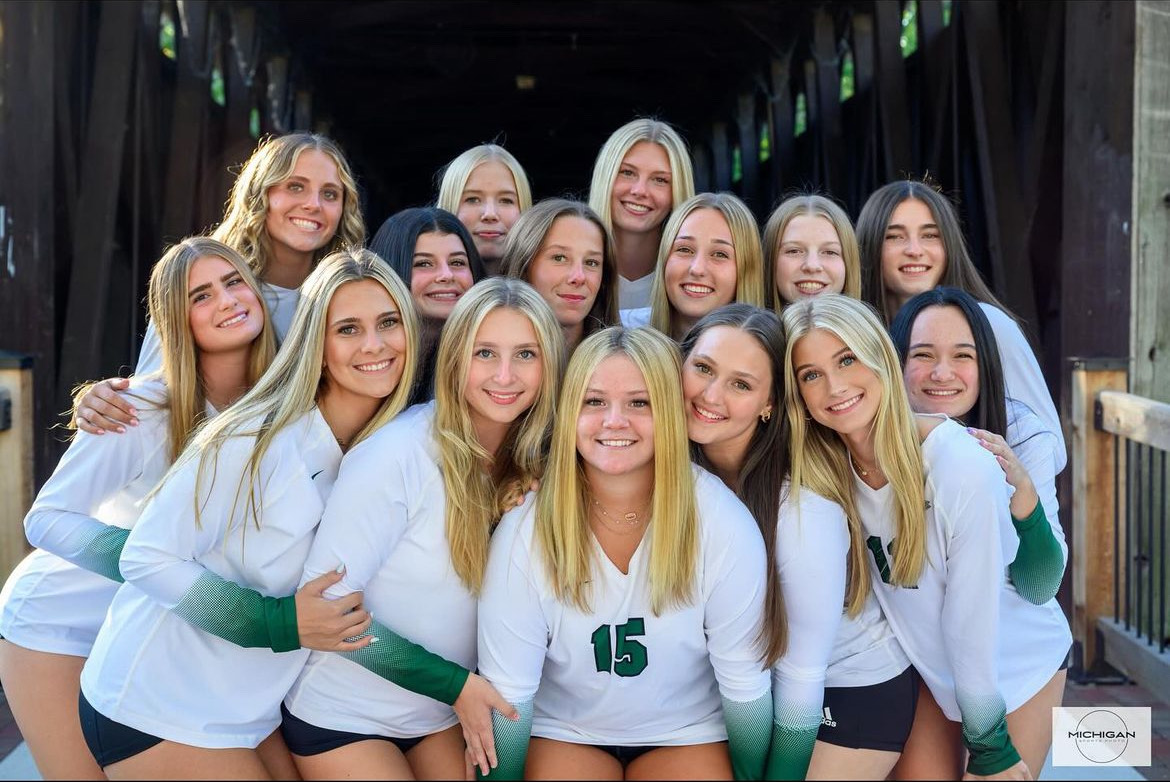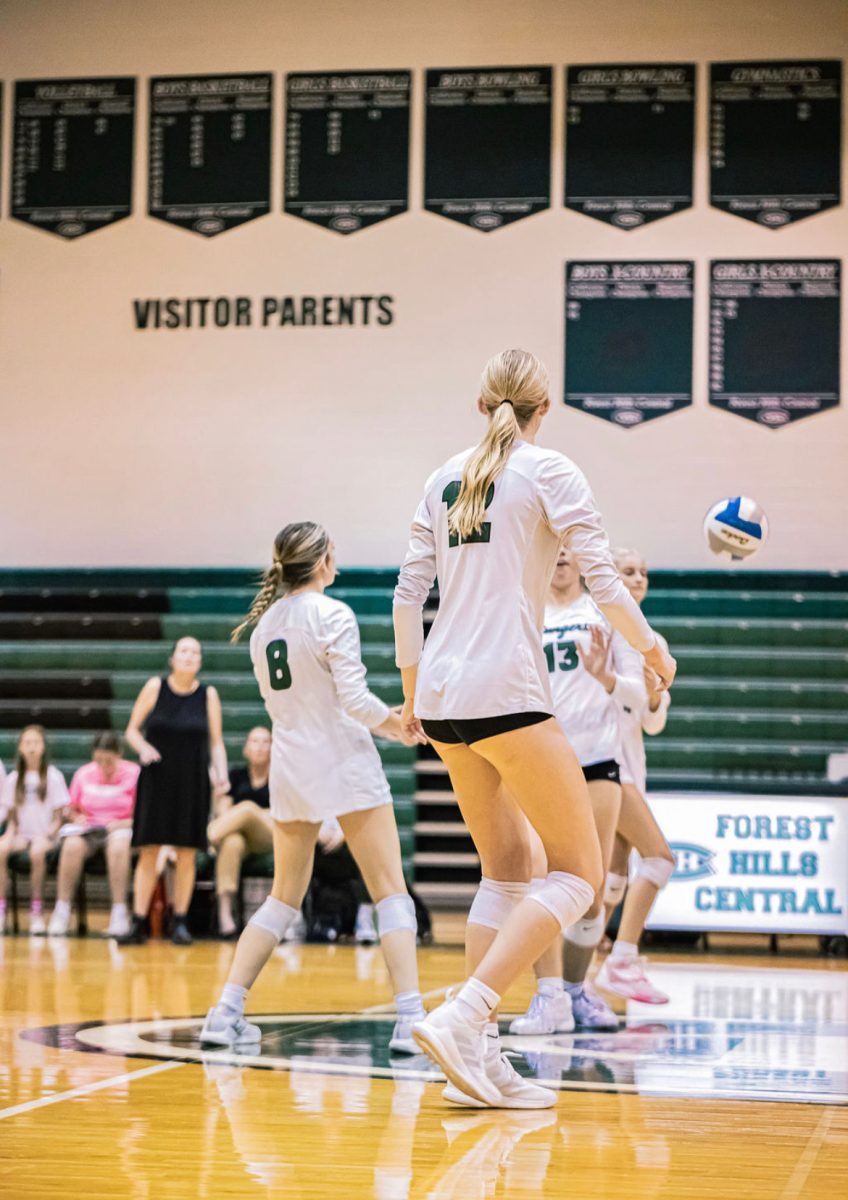On Nov. 26, 2023, coach Tim Rogers coached his final football game—a win over previously undefeated Mason High School to capture FHC’s first-ever football state championship.
The path to this championship, however, started many years ago in another state.
After his playing days as a defensive back at Beloit College, Rogers headed back to his alma mater Chicago De La Salle to jump-start his coaching career. At this point, it was extremely evident Rogers wanted to coach.
“It was obvious to me that I really liked coaching a bunch,” Rogers explained. “So I thought I just wanted to coach football.”
Rogers then began to bounce around after serving four years on the De La Salle staff to various jobs in the college football world. He headed out west first to UNLV [University of Nevada, Las Vegas] as a graduate assistant coach. After a short period in Las Vegas, Rogers took his next college position at Moraine Valley Junior College. However, Rogers had bigger goals in mind, which ultimately landed him a spot as a graduate assistant at Eastern Michigan University. While he enjoyed coaching at EMU, Rogers also knocked out a huge accomplishment.
“I went to Eastern Michigan where I got my master’s degree,” Rogers said. “So that was a big deal. Getting my master’s basically was goal number one, and then I wanted to get into college coaching full time.”
With the achievement of a master’s degree crossed off the list, Rogers was ready to focus on football and bigger coaching positions. However, he hadn’t forgotten the valuable information had gained from smaller roles like that of a graduate assistant at EMU and UNLV.
“It [graduated assistant] is like an internship,” Rogers explained, “like one would be an apprentice in the trades. So you run around and you do all the things that everybody else doesn’t want to do, and at the same time, you learn a whole bunch about football.”
Rogers then headed over to Kalamazoo College where he would serve as a defensive coordinator until his promotion to head coach soon after. For four years Rogers led the Hornets to multiple seasons of stellar defense. For only one season since Rogers left the program, have the Hornets held opposing teams to a lower points-against. Although all was going well for Rogers in Kalamazoo, he still wanted something bigger.
“So a friend of mine,” Rogers said, “Jim Knowles, got me the job at his alma mater Cornell University in New York. And I went with him to Cornell.”
While at Cornell, Rogers served as the offensive coordinator and quarterbacks coach alongside Jim Knowles to perform, in Rogers’ words, “The biggest turnaround in history.” Still, Rogers wanted to be at the reigns of something bigger. After one year at Cornell, he made his way to the head coaching job at DePauw University where he would go on to win the conference. Although the university didn’t seem to agree with the result.
“There’s two kinds of coaches in college football,” Rogers claimed. “Those who have been fired, and those who will be fired. And I became for the first time those who were fired after winning the conference title.”
Rogers came back to Michigan to take up the football program at Grand Rapids Catholic Central and set his roots down. Catholic Central, however, didn’t appeal to Rogers anymore after he coached there for three seasons. It was at this time Rogers felt that his coaching career needed to come to a pause.
“I needed to settle down,” Rogers said, “raise my kids and have some normalcy to my life. So I went into the business world and worked at a medical instrument company here in Grand Rapids.”
Until, one day everything changed in a story best told by Rogers himself.
“And one faithful day, my wife and kids sat me down,” Rogers recalled. “I’ll never forget that day, and they said ‘We want you to go back to football.’ I was like, ‘What are you talking about? Like, I’m actually spending time at home and making more money than I ever had, and may have some sanity in my life.’ Then my youngest, I remember saying, ‘Hey daddy, that’s not you. That’s you. You’re a football coach. We want you to be a football coach. You’re most happy when you’re a football coach.’ So I looked at my wife and I was like, ‘Is this a joke? Or, I mean, do you really want me to do this?’”
Shortly after, Rogers re-entered the world of football coaching at Olivet College where he served as a defensive coordinator.
But one phone call would change the course of Rogers’ coaching path for the career.
“I made it through spring ball recruiting when all of a sudden I got this phone call on the way back from Olivet,” Rogers said. “And Mr. [Steve] Passinault said, ‘Hey, can you meet me at Quaker Steak & Lube.’”
Rogers interviewed for the position of head coach at FHC and positioned himself at the helm of FHC in the 2012 season. When Rogers arrived, he Rangers struggled to complete even just a winning season, and even Rogers’ first couple of seasons showed little signs of improvement.
“We proceeded to just stumble down the road of mediocrity.” Rogers noted, “I mean, we went 5-4, 4-5, 2-7, and 2-7. I began to question whether or not this was for me. You know, I mean, maybe, college is where I belonged and I should stay there.”
But Rogers refused to give up and saw a glimpse of hope in the future of his football team. After his fourth year of coaching, Rogers made a change to the program which turned the tide of his losing season streak for good. Starting in the weight room, Rogers turned his record around completely. The team which had previously been 2-7 returned the next year to claim a playoff spot and a record of 9-3. The only difference was better strength training according to Rogers.
“We just started to do things in the weight room like never before and better than everybody else,” Rogers explained. “And, we haven’t always been the biggest team. You don’t have to be the biggest team, but we’ve consistently been the most explosive team week in and week out.”
With a team well prepared by lifting and training from some of the greatest in the country such as the Navy SEALs and the Acumen Performance Group, success was destined to happen. Rogers led his team to a 12-1 record the following year and winning records every following year. The Rangers have made a playoff appearance each year since Rogers’ fourth season of coaching. In the 2022 season, Rogers led the team to the MHSAA Division II state finals, making it the second time ever FHC has appeared in a football state final; the Rangers, unfortunately, lost to a talented Warren De La Salle team.
But Rogers wasn’t ready to settle for second place. This year’s championship game ended much differently.
Mason High School was on the clock and in for the most challenging game of their season, and Rogers knew it.
“I told our guys in the locker room,’ Rogers recalled. “Here’s how this is gonna go. They [Mason] were gonna get heated up like they’ve never been heated up before.”
The game went no differently than Rogers predicted, ending in a 27-10 win and cracking the undefeated Mason team. The long-term goal of a state championship had now been achieved by Rogers, and also for the first time ever in school history. Backed by the strong FHC community, the moment could not have been any better for Rogers.
“The moment that they hand you the trophy,” Rogers explained. “It could be the district, it could be the regional, and definitely a state trophy, and you have that whole community right there, and to take that trophy, look up at our people and just go ‘boom!’ I’ll never forget that.”
While it may have only seemed like a fairy tale ending to Rogers, so many people helped him along the way. Specifically Rogers’ coaching staff, family, and players. Rogers’ family made countless sacrifices for him to pursue his dreams of one day being able to lift the state championship trophy.
“They’ve seen the highs, the lows and, and all the stuff along the way,” Rogers said. “I mean, they all sacrificed along the way, and seeing me get fired and the hell that goes along with that. Just to experience that at the end altogether was very gratifying. I was fortunate enough to do it with my family there, so it was really cool.”
Rogers also notes the work his coaching staff put in to turn the program around and consistently deliver winning results. Rogers thanks his coaching staff Dave Fortino, Greg Hudkins, Todd Hartman, Ty Hallock, Jared Ropp, Craig Thornton, Justin Robbins, Andrew Kimble, Anthony Sultini, John Vanderwal, and Tripp Gallery.
It is safe to say Rogers has made a significant impact on the football program here at FHC and numerous programs around the country. While Rogers’ coaching career may have come to an end, he ended on an exclamatory state championship where his coaching legacy lives on.
“The combination of the commitment by the community in the off season,” Rogers explained, “The staff that we finally got, and then the offense we needed to run worked for us and everything just took off from there.”



